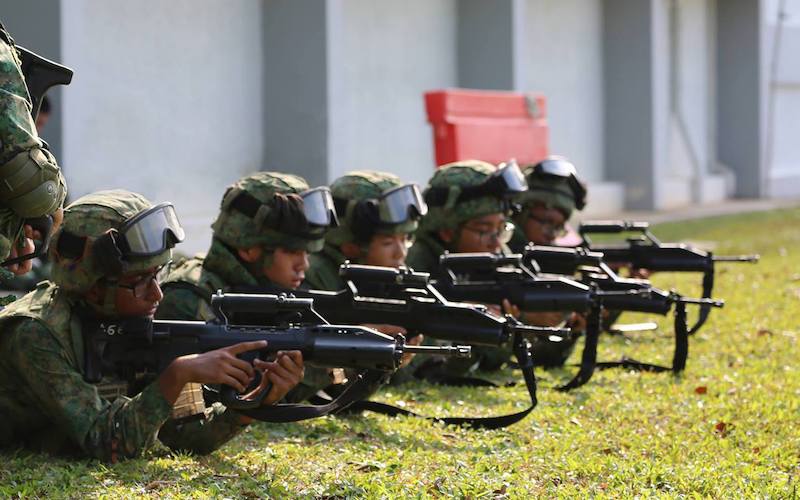In the wake of troubling allegations surrounding a full-time national serviceman’s death, another former Singapore Armed Forces (SAF) Guardsman has taken to Facebook to share his experience — this time to defend the reputation of his unit.
The welfare of national service recruits and trainees has been pushed to the forefront this week ever since 19-year-old Dave Lee died on Monday. The Guardsman trainee died from heat-related injuries sustained two weeks ago after an 8km fast march in Bedok Camp, and allegations have emerged about how Lee’s commanders might have been at fault.
Since the tragic death, a former Singapore Armed Forces Guardsman has spoken up to reinforce the standpoint that young national servicemen in the vocation can be a little excessive in force. Joel Goh has since taken down his viral post, but you can check out snippets of it here where he highlights the toxic masculinity that persists in national service.
Another ex-Guardsman, Ryan Wu, has a different take on the issue, sharing his opinions in response to other NSmen’s negative experience and “biased views” against commanders. Wu makes three big points — nobody is compelled to do anything beyond their limits; “tekan sessions” are necessary to build up mental strength during advanced infantry training; and heat exhaustion is not easy to identify.
“Don’t push yourself beyond the limit just because someone says so,” Wu wrote. “I hope all past present and future guardsmen and fellow NSFs alike take care of themselves.”
Read the whole post on Facebook, or check out some excerpts taken below.
On not being forced to do anything beyond limits
Falling out during training is also shun upon in the unit. From my own experience, I’ve fallen out of training before, only to be questioned by my PS, PC, CSM, and OC. Even men from my platoon and other platoons asked me to push on (phrasing ” don’t keng la” in a nice way here), but that’s my judgment on their intentions. And all I had to do was to insist on falling out, even though my OC said he said I shouldn’t fall out and agree to stay back for RT that weekend.
My point here is that in 1Guards or any unit that has a high rate of malingering, there are bound to be due process to prevent malingering so as to retain the men within the unit. Nobody forced me to do anything, even though the bombardment of questions coming from every commander could seem like it. I, just like every other soldier, had a choice to make, carry on with the training or fall out.
On “tekan sessions”
This occurs mainly in GAIT (Guards advanced infantry training). Yes, everything is more or less true about the tekan sessions. Some of my most memorable ones are; mid-afternoon bear-crawl chasing my PS because some men laughed during PT, cleaning up after a dustbin that was thrown off the second floor because we didn’t put a trash bag in it, running around the parade square because we didn’t get recon 1 for technical handling only to come back after the run to get tested right away, these are just to name a few and I don’t even want to get into the name calling.
However, it’s not just all bad when it comes to these tekan sessions. Yes, as a man receiving all of this at that particular point in time, you feel like shit and demoralized, you question everything and understand nothing. But on hindsight, all these were training and necessary to build up our mental strength for whats to come, because unlike other units, guardsmen don’t have it easier after our training phase, neither do we have it easier in our second year.
The unnecessary tekan ended after GAIT. After that tensions ease a little and we work together to become a battalion.
On the difficulty to identify heat exhaustion
In the experience of my platoon’s medic, during on outfield, we were moving off after a short break, he spotted a man still ‘sleeping’ against his field pack. This guy was not conditioned to our strenuous outfield but still wanted to join us despite this fact. To make things worse, he was from another platoon, meaning to say that his entire platoon missed him (probably because it was dark and everyone was tired).
Fortunately, my medic did all the right SOPs, cutting his clothes and pouring water where necessary. This was after my medic accessed the situation, all while the company medic (a sergeant) was also present but hesitated on what to do. My point here is that heat exhaustion is very serious but not easy to spot. And the question is to who is to blame for such an accident to even occur.




